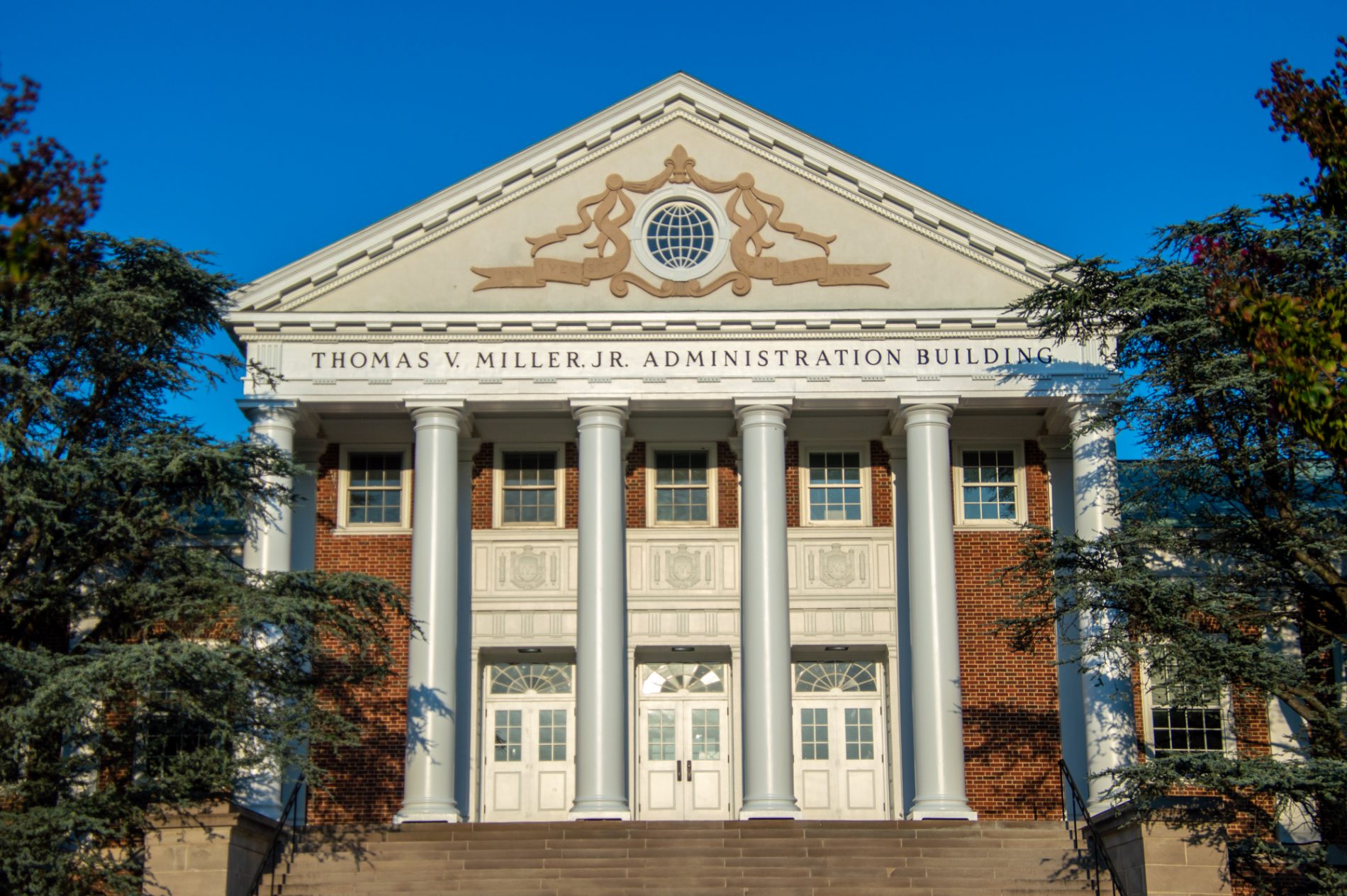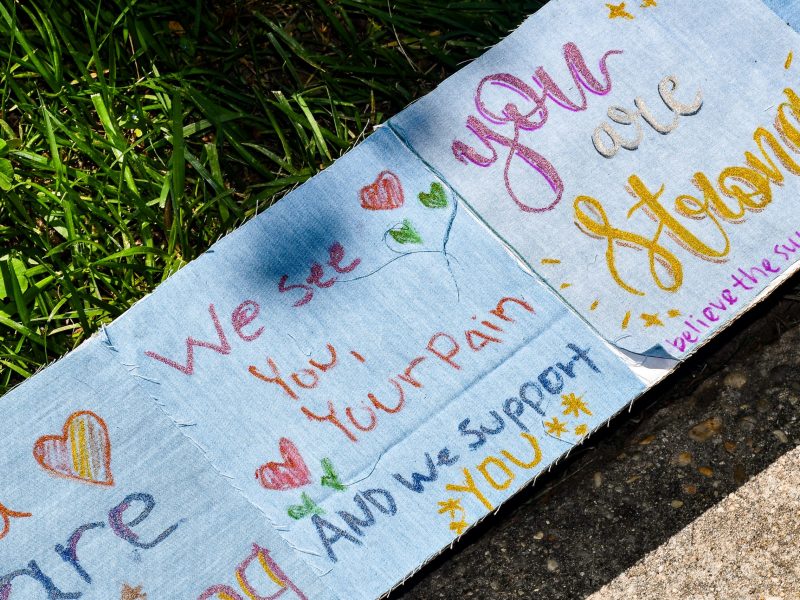The University of Maryland launched a dashboard Wednesday afternoon to track its progress in addressing the 25 demands — which administrators refer to as critical issues — Black student leaders defined last semester.
In keeping with the students’ ninth demand — in which they call for the university to practice transparency and accountability in addressing the issues raised — the dashboard details specific actions the school has taken to fulfill each demand as well as the university partners responsible for addressing each one.
As of Wednesday, the dashboard listed one demand as completed, seven as ongoing and 17 as in progress.
University President Darryll Pines introduced the list of demands in a campuswide email in November, in which he described how the school had convened a group of student leaders from more than 30 Black student groups to “work toward a more inclusive, multicultural environment.” Since then, administrators have been meeting one every three weeks with the student leaders to discuss their demands and determine timelines for fulfilling them.
In a Wednesday email announcing the dashboard, Student Affairs Vice President Patty Perillo and Diversity and Inclusion Vice President Georgina Dodge wrote that they “remain motivated by our committed students who advocate for a university that better serves all Terps.”
“Together, we acknowledge that there is much to be done, and we will keep working,” they wrote.
Here are some insights from the updated website published Wednesday.
[UMD students push to remove Thomas V. Mike Miller’s name from admin building]
For most demands that call for University Police reforms, the university references the task force Pines charged to provide recommendations on how to enhance public safety and community policing on campus. These recommendations are expected by the end of this semester and will begin to be implemented during next school year, according to the website.
In their first demand, Black student leaders call upon the university to increase the number of Black faculty, staff, teaching assistants, administrators and advisers. On the website, the university notes it has made several exceptions to the ongoing hiring freeze for “underrepresented minority faculty with whom [it is] currently negotiating.” The school also says it has clearly communicated to all departments that increasing diversity among faculty, staff and students is a priority and that it is developing “financial incentives” so that it may compete with other employers.
In their fourth demand, student leaders call for the university to mobilize an immediate response to hate speech or actions, including a consequence. According to the website, the student affairs division has formed a work group with the Office of Diversity and Inclusion to review the division’s policies and protocols involving hate bias incidents and work to establish “common language” among all of the division’s departments. The group’s work is expected to finish in August.
In their seventh demand, Black student leaders call for the university to create a Black career center — in Nyumburu Cultural Center or a new facility — to “better expose Black students to scholarships, conferences, and internships that value Black people.” According to the website, the Career Center has engaged “diversity, equity and inclusion partners” at the university on what is needed to improve services for Black students, and it also plans to engage the Black Student Union and the Black Alliance Network in similar discussions. According to the website, the university is also in the early stages of planning additional programming, including engaging student liaisons from student groups and forming a student advisory board.
In their eighth demand, the leaders ask the university to memorialize 1st Lt. Richard Collins — a Black Bowie State student murdered on the school’s campus in 2017 by a white former student at this university — with a physical memorial. According to the website, the university has recently identified a site for the memorial that the Collins family supports, and it aims to complete it by next fall.
In their 10th demand — the one critical issue the university identifies as “completed” on its dashboard — Black student leaders call for the school to create an oversight committee that evaluates and sanctions faculty members who have allegedly exhibited racist or discriminatory behavior toward students. According to the update published with this demand, allegations of discrimination by faculty are investigated and adjudicated by the Office of Civil Rights and Misconduct and allegations of hate or bias from faculty members are handled by the Office of Faculty Affairs.
According to the Critical Issues website, faculty members can be sanctioned only after a process that follows due process and the First Amendment, which is also true for students. Confidentiality is protected for both student and faculty discipline matters, according to the website.
[Pines announces partnership with Black student leaders to discuss anti-racist efforts]
“An oversight committee to evaluate and monitor faculty discriminatory behavior is inconsistent and unnecessarily duplicative of these established processes and procedures, which were approved by our University Senate after input from students, faculty and staff,” the website reads.
In their 11th demand, Black student leaders ask the university to create more spaces on the campus for Black students so that “they are not only relegated to Nyumburu by default.” According to the website, Patty Perillo, student affairs vice president, is considering options for additional space to be set aside for Black, Indigenous and other students of color in the locations controlled by the student affairs division. An update will be provided this summer.
In their 13th demand, Black student leaders call upon the university to end the militarization of University Police and to “sanction safe residential halls and environments by removing armed police and decreasing their presence.” On his first day of office, Pines announced that University Police would divest from the 1033 program — a Defense Department initiative that provides excess military equipment to local law enforcement agencies. On Feb. 22, according to the website, University Police were “officially deactivated” from this program.
In their 15th demand, the student leaders call for the school to divest from the Maryland Correctional Enterprises — the industrial arm of the state prison system —, companies invested in the enterprises and the prison-industrial complex. Much of the furniture that populates campus and the campuses of the University System of Maryland’s 12 member institutions was made by incarcerated people employed by the enterprises; under state law, the system is required to give Maryland Correctional Enterprises preferred procurement status.
According to the website, the university will continue to study its relationship with the enterprises and invite speakers and experts to provide the campus community with insight into the prison system and how it interacts with higher education in the state.
In their 21st demand, Black student leaders call upon the university to issue an official land recognition that its campus stands on land stolen from the Piscataway Conoy people. According to the website, the university will incorporate a land acknowledgement — organized by the Office of Multicultural Involvement and Community Advocacy and approved by Piscataway elders — into Pines’ inauguration this semester, as well as the TerrapinSTRONG onboarding program in the fall.
In their 23rd demand, Black student leaders call upon the school to strengthen the Bias Incident Support Services office by adding at least three more employees to support its efforts in responding to hate bias incidents, educating the campus community and keeping community members updated when such incidents occur. According to the website, BISS currently has three staff members and a proposal is underway to hire a graduate assistant by May. The new director is also reviewing current staffing needs and expects to be finished by the end of the year, according to the website.
Later this semester, The Diamondback will be launching a special project that delves into each of the 25 demands, as well as each of the six demand clusters issued by the Black graduate student coalition, BLK Grads for BLK Lives.



